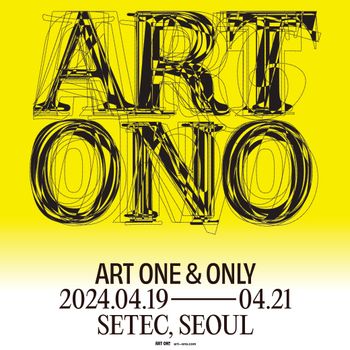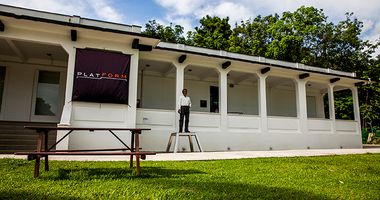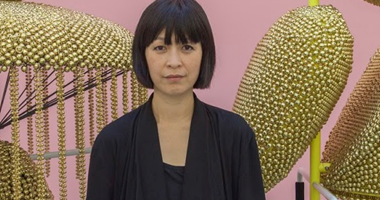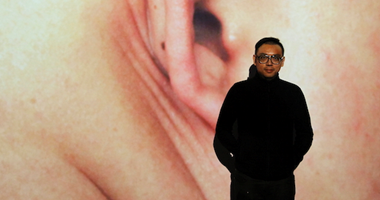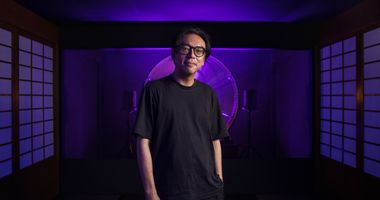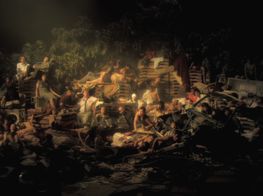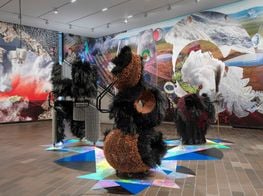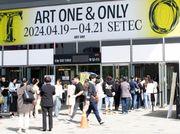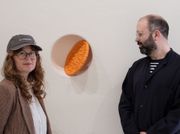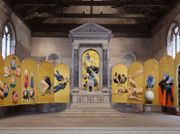Savita Apte: Platform Projects
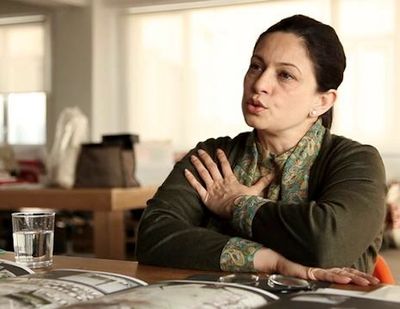
On the day before Art Stage's Vernissage, Anna Dickie spoke to Savita Apte about a small non-profit organisation that she, along with Shareen Khattar and Christine Pillsbury founded in 2011. The organisation is Platform Projects Singapore, and despite its size, has had a significant impact upon the Singapore art scene.
A registered charity, Platform's stated aim is to 'harness the interests and energies of collectors and patrons to support and promote contemporary art throughout the region'. Recent projects include facilitating Haegue Yang's successful residency at the Singapore Tyler Print Institute, and more recently Ho Tze Nyen's residency with Asia Art Archive.
Last year, during Art Stage, Platform co-presented the hugely popular 'Intelligence Squared' debate, and this year presents 'The Art of Sharing: Sharing Your Art' a panel discussion taking place on Friday, January 17, which will feature the legendary Dorothy Vogel.
ADLet's talk about Platform — the initiative started by you, Shareen Khattar and Christine Pillsbury. How did it all begin?
SAShareen took the initiative of asking me out to lunch. We were talking about the Gillman Barrack's opening week. The Economic Development Board - well the cultural side of it - had approached Shareen about the possibility of doing something to really make the week very exciting. My take on it was that it seemed like a lot of effort for one week.
I felt that if something was to be done it should be sustainable and go through the year and pull collectors and patrons together to really see if a difference could be made to the Singapore art scene, and in particular to the way the world viewed that scene. I thought I was 'bouncing ideas', but at the end of the lunch Shareen said: "I am delighted you are on board". And Platform grew out of that.
ADPlatform seems to me to be very much about acting as a facilitator and catalyzer for projects — would that be correct?
SAExactly — that was the idea when we started it. We wanted Platform to be a not-for-profit and indeed it is, and we wanted it to work democratically across the board - with commercial galleries, auction houses, institutions and also in partnership with corporate collectors and corporate donors, as well as patrons of the arts, and with other individuals here.
What we wanted to do is bring everyone together, and for everyone to 'sing from the same song sheet' — not necessarily in relation to the same programmes - but to say that we are "all passionate about the arts, and we all feel we can do so much more if we come together, and it is this collective passion that can drive things forward". We wanted to focus on this collective passion.
ADAnd what are the types of projects or commissions that Platform has been involved in during 2013?
SAWell in 2013 we set up a residency programme with the Singapore Tyler Print Institute to award a really special residency to an up and coming artist — someone who we, along with STPI, identified as an artist who was on the cusp of change and for whom this residency would instigate that transition. We wanted the residency to assist that artist to re-think their work, and also to provide them with a platform to be introduced to an international audience.
This Residency was very successful. It was awarded to Haegue Yang, who is of Korean origins and who lives and works out of Berlin. Her residency was the fulfillment of all of our wishes and hopes. She came in as an artist and immersed herself in the local culture, and the work that she produced at the end of the Residency, although it bore obvious resemblance to her earlier work, was nevertheless such a departure from anything that she had ever done.
She really considered what it is to be of the diaspora, what it meant to be part of communities that migrate, and in particular she explored how those communities hold themselves together through food and other sensations - spices, smells and sounds; and that is what she encapsulated in her work. So it was just a very poignant series — very pertinent to Singapore and yet rendered in a very Haegue Yang way. It was exactly what we wanted out of a residency like that.
ADAnd what is the next big project for Platform?
SAThe next big one is the project we are working on with Asia Art Archive. This involves a Singapore based residency for the artist Ho Tzu Nyen. Ho Tzu Nyen is putting together The Critical Dictionary for South East Asia. He is a fantastic artist and Asia Art Archive is a wonderful organisation to partner with.
I think this project very much speaks to what Platform does really well. We partner with organisations that already exist and are doing exemplary work in the field that they are in. We don't try and reinvent the wheel. We simply make sure that we can help these types of organisations in this region - in this little patch of green within South East Asia — to do the best they can so we can get the benefit of that in Singapore.
ADThere seems to be a real trend among non-profits to embrace this concept of partnership, and to move away from the concept of nation, in favour of the concept of idea. This would appear to be Platform's ethos also?
SAAbsolutely. We are a tiny organisation in the big scheme of things and we completely realise that in many ways we punch above our weight, but the only reason we are able to do that is because we form these partnerships.
ADYou are also presenting a talk during Singapore Art Week entitled 'The Art of Sharing: Sharing Your Art', which will include Dorothy Vogel on its panel. Why did you decide this was an important topic?
SADorothy Vogel has very kindly agreed to come out to speak on this panel about sharing collections. We wanted to do this because so many collectors are known for their names and the laundry list of their collection, rather than their passion. The three collectors on this Panel are all inspiring for their passion and their willingness to share that passion.
On the panel we have Dorothy Vogel, who as you know with her late husband built up this enormous collection with fairly modest means, Sue Gardiner, whom you know from the Chartwell Collection — Sue and her father have done such an amazing job for the Auckland Art Gallery and all of New Zealand - and Simon Sakhai, who co-founded The Moving Museum.
Again he and his partner, Aya Mousawi really believe that putting together a collection is not just about having things on your wall and strutting around saying 'I am a collector', but it is about being passionate and using the works to communicate ideas across sometimes fairly impenetrable political borders.
We have had an enormous response to the talk. Of course it presents a wonderful opportunity to listen to Dorothy Vogel first hand. We are very fortunate because she doesn't travel and makes few appearances. She is a modest woman to say the least, but she has agreed to come out here and speak about what they collected, how they collected and what drove them to this wonderful passion.
ADYou will also be showing the second documentary movie that relates to the Vogel's collection, 50x50?
SAYes, alongside A Craft Initiative, we will be co-hosting the premier of the second of Megumi Sasaki's films Herb and Dorothy 50x50
ADDuring Art Stage, and as part of the fair's talk programme, you will also be joining a panel to speak on the topic of 'The Art Market: Hong Kong vs Singapore'. When you and I talked some months ago we briefly discussed this issue of there being a competition between Hong Kong and Singapore as an 'Asia Arts Hub'.
I recall you were very much of the view that there didn't have to be one hub, there in fact could be two. Does your view remain the same?
SAI continue to hold the opinion there can be two art hubs, and that is exactly what I will be saying on the Saturday. It seems to be a topic that people want to thrash out, and I think we very much need to realize and accept that there need not be a competition. Singapore and Hong Kong should be two art hubs working independently as well as collaboratively to make sure that Asia gets what is the best from the World. —[O]


